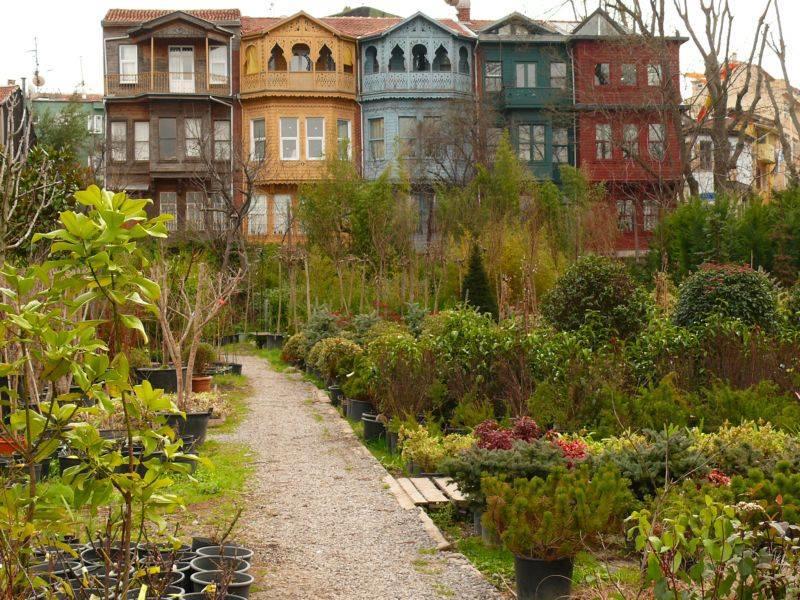
The Bostans - A wonderful and rich UA heritage: linking past and future sustainability through UA Heritage.
The City of Istanbul possesses a unique tradition of market gardening. The “Bostans” are historic plots of land used for agriculture. Many are located within the Yedikule neighbourhood of ancient city centre of Istanbul. Historically, such gardens were created alongside the City’s Theodosian city walls, which provided storage for harvested crops and which were also located close to wells offering regular and reliable sources of water which necessary for their maintenance. At one time there were over 1500 vegetable gardens located throughout Istanbul. The number remaining today is just a mere fraction of this however.
The Bostans traditionally acted as boundaries and contributed to the self-sufficiency and provisioning of the City’s residents. They were typically small gardens or orchards of up to around 2 ha in size. The Bostans and their gardeners were in held in high esteem within the City and contributed to Istanbul’s food and employment needs. As the City expanded in size during Ottoman times, orchards, agricultural fields, and vegetable gardens became a common feature within the city. The number of gardens throughout Istanbul further increased through an influx of migrants who also brought their own knowledge of gardening when they settled in the city.
Under Threat:
In recent years however, the Bostans have been under threat from development interests. The City of Istanbul has increasingly been characterised by high levels of urbanisation, with population growing to over 15 million. This has created extreme pressure upon land for residential development and is also reflected in spiralling property values. Unfortunately, developers and the city officials have not appreciated the intrinsic value of the Bostans and their potential future contribution to food security and wider green infrastructure benefits.
The global industrialization of food production has further helped to further diminish the status of the Bostans, which are now perceived by many, to represent an outmoded and irrelevant use of space within a contemporary urban setting. Meanwhile, others would like to see the land used as part of a more formal greenspace network, to provide a range of safe play, leisure and recreational facilities. With this in mind, the Municipality, have discouraged the operation of the farms, with reportedly some sheds having been destroyed and fields taken out of cultivation. Developers meanwhile, have downplayed the benefits of the gardens, with unsubstantiated claims that their presence depresses local property values and therefore impedes progress.
The Future for the Bostans as part of an integrated UA and green infrastructure:
There are however, positive signs of interest in reviving the Bostan tradition in Istanbul. For example, members of Yeryuzu Dernegi - Earth Association - are working to promote the concept of urban gardening in Istanbul, with the organisation offering mentoring on how to transform unused spaces into gardens. In addition, the Tarihi Yedikule Bostanlarını Koruma Girişimi is an initiative which has been specifically created to preserve the historic Yedikule City Gardens which have been under threat from proposals to redevelop the area as a formal park.
In this respect the Bostans present many opportunities for delivering multifunctional green infrastructure and a contribution to UN Sustainable Development Goals: the gardens provide food and greenery within an urban setting, preserve Istanbul’s rich history, and also offer attractive greenspaces where families, neighbours and communities can meet together.



